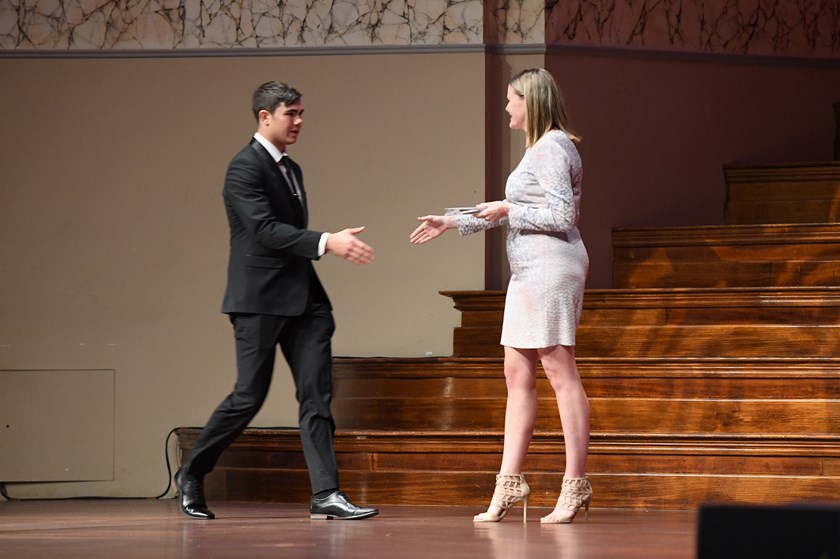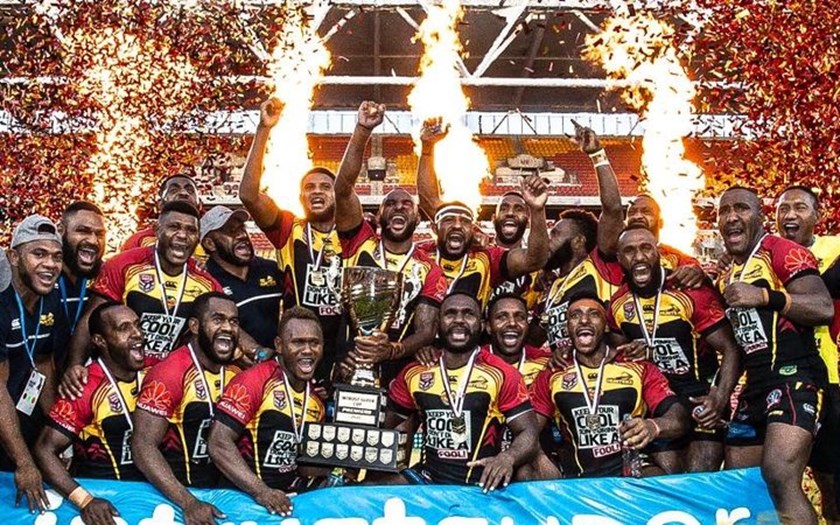
Ahead of the second week of semi-finals in the Intrust Super Cup, QRL Media caught up with Competitions Manager Dave Maiden to ask him 10 pertinent questions:
1. What has excited you most about season 2018?
DM: The closeness of the Intrust Super Cup, with the bottom teams beating finals contenders right up until the last round. From memory, going into the penultimate round we had 10 of the 14 teams still in contention for the top six. It was difficult to pick winners on a weekly basis. In the end it was a win by the second-last team (CQ Capras v PNG Hunters) which shaped the finals make-up and it wasn't until the last game of the year (Norths Devils v Ipswich Jets) that our final 6 was confirmed.
2. Will anything change for 2019?
DM: I think a big focus is increasing the speed of play. The feedback we are getting from across the game's stakeholders is they want to see the ball in play more often to increase the excitement levels and introduce an element of fatigue. That will put us in good stead as a premier competition where players transition directly into the NRL. We want to present players with as close to NRL conditions as possible. The higher our expectations grow in Intrust Super Cup, they will also force a lift in our Under 20s Hastings Deering Colts competition.
3. How important is it that Queensland's Intrust Super Cup produces teams and players capable of beating those in the New South Wales Intrust Super Premiership?
DM: Beating NSW is always a goal of Queensland's on the field, no matter the circumstance. It's our mission to be the state that plays the most exciting and successful style of rugby league. We want to encourage the best players to come into our competition and know they will be challenged, but also looked after in terms of welfare. Rather than compete with NSW away from the field, we want to focus on the areas we do well, improve the ones where we see the need and provide an aspirational level for all participants within our game.
4. When you say "looking after players", what do you mean by that?
DM: We're always looking to acquire more funding to assist the staffing of wellbeing officers around the state. We'll continue to fight hard for that.
5. The Intrust Super Cup has absorbed many players from the National Youth Competition, how has that changed the face of the comp?
DM: Yes, the Cup has taken on a lot of NYC guys, as has the Colts competition. If I can return to the previous point, we know that 60-70 per cent of the time of NRL club wellbeing officers was previously devoted to players in this age group. The game recognises the fact these players need assistance, but post-NYC, Queensland hasn't been resourced to meet that need in the same way that NSW has. The QRL has gone ahead of its own volition to appoint a few more wellbeing officers but we are still well short of where we want to be.

6. There has been comment passed that this year's crop of rookies is exceptional – both those playing Intrust Super Cup for the first time and those graduating from Intrust Super Cup to the NRL in 2018. Do you agree?
DM: The fact that so many of the Top 10 vote-getters for the Petero Civoniceva Medal were rookies was stunning. When you consider Harry Grant was a few votes away from winning the major award, but Jake Clifford still beat him to the Carbine Club Pedro Gallagher Rookie of the Year, that shows the quality of young talent. Everyone knows what David Fifita can do on an NRL stage, but Thomas Flegler was actually Souths Logan's top candidate for Rookie of the Year. Quite remarkable. Kotoni Staggs at Redcliffe has been a revelation in his first year of senior footy and a player whose style I love to watch.
7. Where is there work to be done?
DM: That void we've talked about previously in regards to NYC means it is ultra-important we get our Hastings Deering Colts Under 20s competition right. This year was our first crack at it in the current format and there is still a little work to do. It needs to replicate the standard and expectations of the Intrust Super Cup, but this year we didn't have a competition where every team was capable of winning against the top sides on their day.
8. What highlights from club level in Intrust Super Cup were you pleased with?
DM: Everyone comes from somewhere, and while I am impartial in running the competition, my background is in Cairns. To see the Northern Pride back as a force in the competition was a positive, after finishing towards the bottom in 2017. They have a young club of mostly local kids and it's important for the pathway there that they got some wins under their belt. The 13 other coaches in the competition decided (Pride coach) Ty Williams was the Coach of the Year, so the Pride are doing something right.

9. What can you tell us about PNG's continuation in the Intrust Super Cup?
DM: We're currently renegotiating their four-year Participation Agreement to stay in the competition. From our end it's a formality because we love having them in the competition, so provided funding is made available, we should be good to go again. Despite the huge turnover in players they had this season – and the news the Boas brothers are heading to England – they were quite consistent I thought. More than any other club they are a showcase of the talent in their local region, so you will always have players moving to other leagues, but that's exciting at the same time. They've got a great set-up there as a club and we've seen their domestic competitions grow in strength too, so things are pointed in a positive direction, even if they didn't win a trophy this year.
10. The Victoria Thunderbolts are still alive in the Colts competition and have brought some excitement to the season. What can you say about their involvement in a QLD-based competition?
DM: We're very pleased to have them in the competition. It started as a short-term solution, but looks like it could continue into the future, provided NRL funds continue to be allocated. The road-trip to Melbourne for the other teams is a good chance for them to prove their maturity and be in a camp environment. And for the Thunderbolts – they travel an awful lot and that's shaping some very experienced and resilient young men. The majority of the squad is Victorian and they can be proud of the quality they've put together. Their catchment is limited and they're doing well with what they've got. If a player misses out on selection for the Thunderbolts, they go back to the local men's competition and it's a pretty hard one with a lot of body contact.





